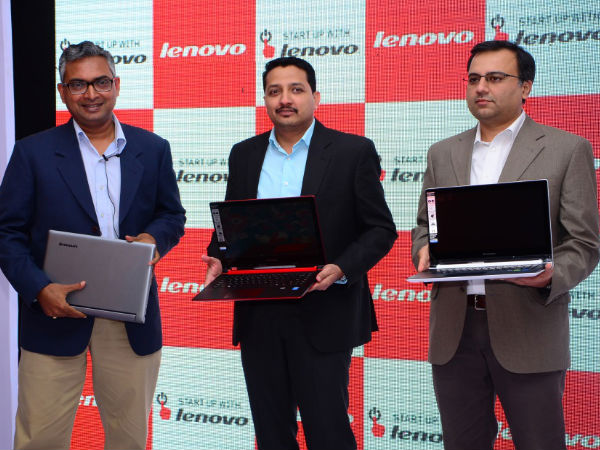Lenovo, which recently acquired Motorola, today announced the launch of attractive finance schemes to make computers more accessible to the youth population. India’s current computer penetration is 10%, which is the lowest among developing countries like Vietnam (16%), South Africa (18%), Turkey (49%) and Malaysia (64%). Lenovo is joined by Intel in its effort to promote this initiative across Andhra Pradesh and Telangana.
India is set to become one of the world’s youngest countries in the next five years but the growing number of youth who do not have access to a computer is becoming an issue of national interest. To address the issue, Lenovo is offering 100% financing with zero down payment and zero interest on the purchase of high performance laptops and AIOs. The payment can be broken up across multiple EMIs with no interest fee.
Program Details
• Lenovo is offering a range of fully loaded, great value computers across AIOs and laptops starting at INR 22,390.
• For the finance schemes, Lenovo has tied up with a consortium of 11 banks including HDFC Bank, Citibank, ICICI Bank, Kotak Mahindra Bank, Axis Bank, Standard Chartered Bank, HSBC Bank, Indusind Bank, American Express Bank, SBI-GE and Rathnakar Bank Ltd.
• Lenovo is also looking at tie ups with leading telco majors to provide free internet dongles with every computer purchase. This initiative is being piloted in Andhra Pradesh and Telangana as it complements their focus on education to bridge the IT divide. Lenovo is looking at a comprehensive 360 degree marketing outreach that includes Advertising and student engagement through college contact programs across the two states.
Speaking about the initiative, Shailendra Katyal, Director- Home and Small Business, Lenovo India said, “As the global PC leader, we want to address the problem of computer penetration in the country. Lenovo has seen success in driving initiatives of this nature in large, emerging markets such as China and we want to replicate this in India. We chose Andhra Pradesh and Telangana as the first region, as they offer immense IT talent. We plan to roll this out in the rest of India too.”


